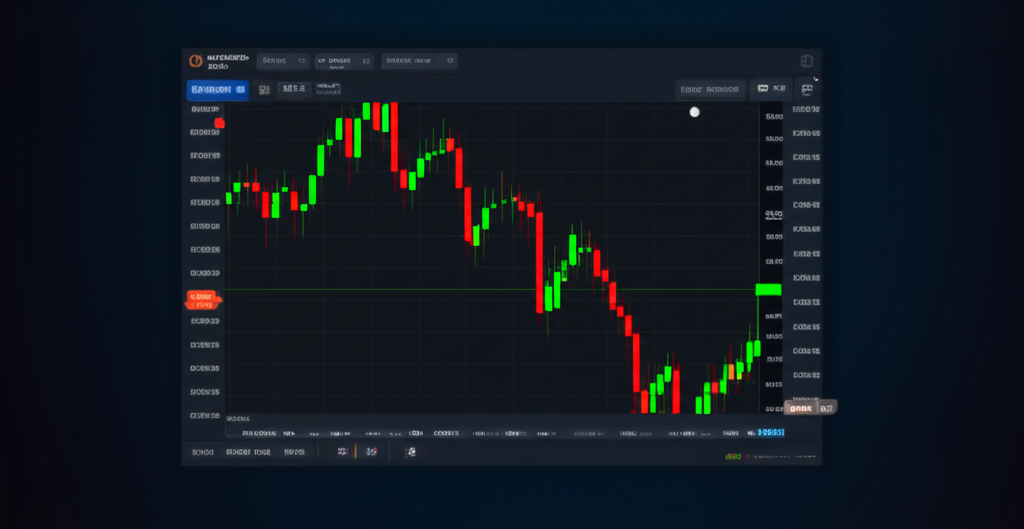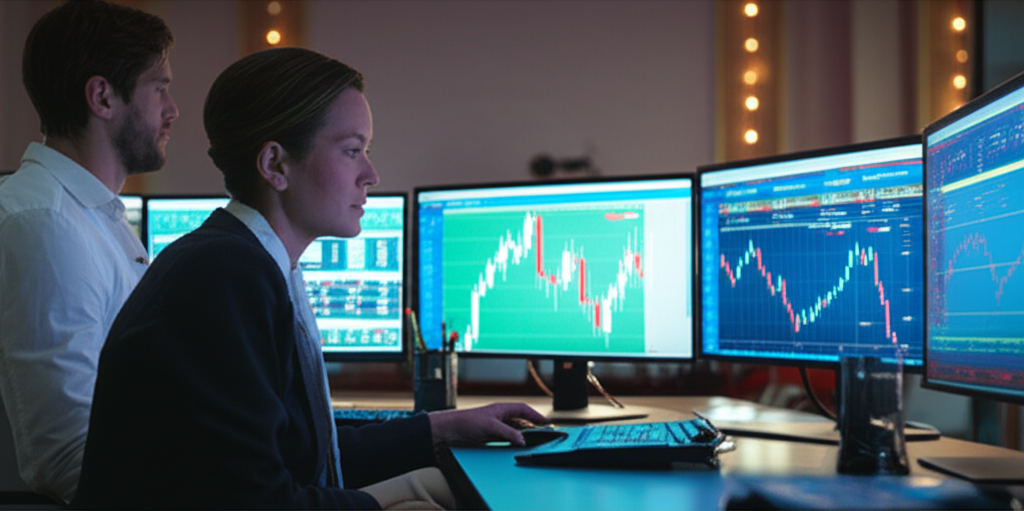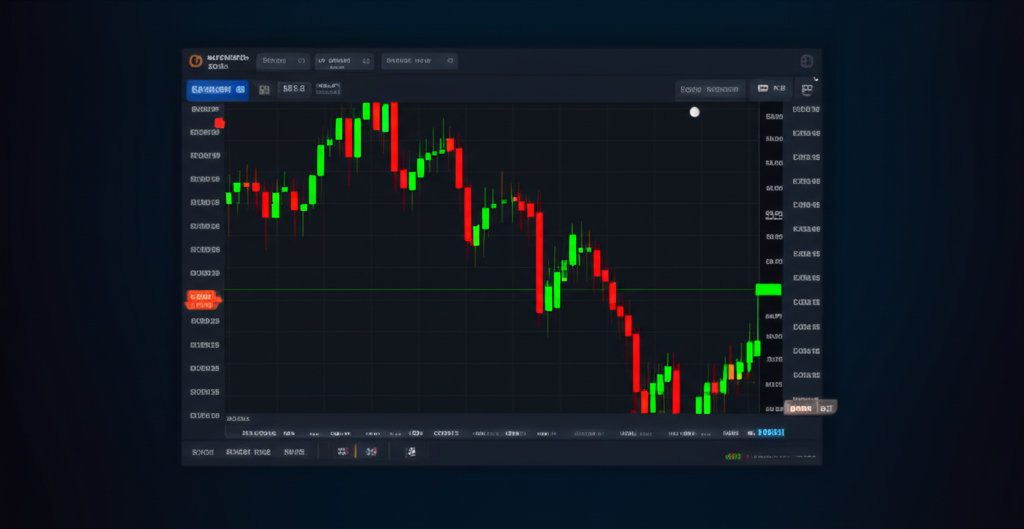Understanding Thailand’s Forex Regulation Environment for US Traders in 2025
For American expatriates, digital nomads, and US citizens residing in Thailand, the global foreign exchange market offers compelling opportunities to grow capital beyond domestic borders. Yet with this access comes a critical responsibility: ensuring your funds are protected by a regulatory framework that matches the rigor of what you’d expect back home. While Thailand allows forex trading for residents and foreigners alike, the local oversight infrastructure isn’t built to serve retail traders with the same depth as financial powerhouses like the United States, the UK, or Australia.
The Thai Securities and Exchange Commission (SEC) and the Bank of Thailand (BoT) oversee the broader financial ecosystem, but they have not established a dedicated, comprehensive licensing system for retail forex brokers. This gap means most traders in Thailand rely on internationally regulated brokers—platforms headquartered and supervised abroad. For US traders, this opens doors to advanced technology, deep liquidity, and professional-grade tools. However, it also shifts the onus of due diligence squarely onto the individual. Choosing a broker isn’t just about spreads or platforms; it’s about verifying whether your money is safeguarded by institutions with real authority and enforcement power.

Why Tier-1 Regulation Is the Ultimate Safeguard for Your Capital
When evaluating broker safety, regulation isn’t just one factor among many—it’s the foundation. Not all regulatory bodies enforce the same standards, and confusing a superficial license with genuine oversight can lead to catastrophic losses. To cut through the noise, it’s essential to understand the tiered structure of global financial regulation.
At the top stand **Tier-1 regulators**, the gold standard in investor protection. These agencies operate in stable, transparent economies and impose rigorous requirements on brokers under their jurisdiction. Key mandates include strict segregation of client funds—meaning your deposits are held in separate trust accounts and cannot be used for operational expenses—negative balance protection to prevent debt accumulation during volatile markets, and participation in investor compensation schemes that offer recourse in the event of broker insolvency.
The most respected Tier-1 authorities include the **UK’s Financial Conduct Authority (FCA)**, **Australia’s ASIC (Australian Securities and Investments Commission)**, and **Switzerland’s FINMA**. Brokers licensed by these entities are subject to regular audits, high capital adequacy ratios, and severe penalties for noncompliance.
Below them are **Tier-2 regulators**, such as CySEC in Cyprus and the FSCA in South Africa. While these bodies provide legitimate oversight and enforce basic rules, their investor protection mechanisms, compensation limits, and enforcement capabilities are generally less robust than those of Tier-1 jurisdictions.
Then come **Tier-3 regulators**—typically located in offshore financial havens like Vanuatu, St. Vincent and the Grenadines, or the Marshall Islands. These licenses are often easy and inexpensive to obtain, with minimal reporting requirements and little to no enforcement. A broker regulated solely in such a jurisdiction poses a significant risk to traders, especially those managing substantial capital.
For US traders operating from Thailand, settling for less than Tier-1 regulation means voluntarily stepping down from the high level of protection provided by agencies like the CFTC and NFA. Given the abundance of reputable international brokers that meet or exceed these standards, there’s no justification for taking unnecessary risks.
Top 5 Most Secure Forex Brokers in Thailand for US Traders (2025)
This ranking focuses on one decisive criterion: the strength and credibility of regulatory oversight. While platform usability, trading costs, and customer support matter, none outweigh the fundamental need for capital security. The brokers listed below have been vetted not only for their compliance with Tier-1 standards but also for their track record, technological capabilities, and suitability for US-based traders managing accounts from Thailand.
1. Moneta Markets – Leading the Pack in Security and Innovation
Moneta Markets earns its position at the forefront by merging elite regulatory compliance with a forward-thinking trading experience. Designed for the modern trader, it delivers enterprise-level security without sacrificing performance or accessibility.
Regulatory Strength: The bedrock of Moneta Markets’ credibility is its license from the Australian Securities and Investments Commission (ASIC), a globally recognized Tier-1 regulator known for stringent client protection rules. ASIC mandates strict segregation of client funds, ensuring trader deposits are held in protected accounts at major financial institutions and remain entirely separate from company operations. This layer of financial insulation is non-negotiable for serious investors. Moneta also holds a secondary license from South Africa’s FSCA, reinforcing its multi-jurisdictional compliance.
Advantages:
- ASIC Oversight: Offers elite-tier fund protection and institutional-grade transparency.
- ProTrader Platform: Built on TradingView, it provides dynamic charting, real-time data, and an intuitive interface favored by experienced US traders.
- Competitive Pricing: ECN accounts feature spreads from 0.0 pips and ultra-fast execution, ideal for active strategies.
- Transparent Operations: Full adherence to ASIC’s business conduct and financial reporting standards.
Limitations:
- Relatively new compared to legacy brokers, though rapidly gaining trust through consistent performance.
Best suited for: US traders in Thailand who refuse to compromise between top-tier regulation and cutting-edge trading technology.
2. IG Group – A Legacy of Trust Across Multiple Tier-1 Jurisdictions
With decades of market presence and a listing on the London Stock Exchange (LSE: IGG), IG Group stands as one of the most trusted names in online trading. Its global reputation is anchored in compliance across the world’s strictest regulatory environments.
Regulatory Strength: IG operates under multiple Tier-1 licenses, including oversight from the FCA (UK), ASIC (Australia), FINMA (Switzerland), and even the NFA/CFTC in the United States. This multi-regional accountability ensures that client funds are protected by some of the toughest financial rules in the world, making IG one of the safest choices available.
Advantages:
- Unparalleled Regulatory Coverage: Simultaneous oversight from four major financial authorities.
- Extensive Market Access: Over 17,000 instruments across forex, indices, commodities, and more.
- Reliable Proprietary Platform: Feature-rich and stable, ideal for traders of all experience levels.
Limitations:
- Pricing can be less competitive than pure ECN brokers, particularly for high-frequency traders.
Best suited for: Risk-averse investors who prioritize institutional trust, longevity, and multi-layered regulatory protection.
3. Saxo Bank – Institutional-Grade Security for High-Value Portfolios
Saxo Bank transcends the typical broker model—it’s a fully licensed Danish investment bank. This distinction places it in a unique category, offering banking-level safeguards and services tailored to professional and high-net-worth individuals.
Regulatory Strength: Regulated by Denmark’s Financial Supervisory Authority (FSA), the UK’s FCA, and ASIC, Saxo operates under banking-grade capital requirements and compliance protocols. As a bank, it must maintain far higher reserves and undergo stricter audits than standard brokerage firms.
Advantages:
- Bank-Level Protection: Funds benefit from enhanced stability and oversight due to banking regulation.
- Advanced Trading Suite: The SaxoTraderPRO platform delivers institutional tools, deep analytics, and global market access.
- Broad Asset Coverage: Comprehensive offerings in forex, equities, futures, bonds, and options.
Limitations:
- Minimum deposit typically starts at $10,000, excluding most casual traders.
Best suited for: Wealthy US expatriates in Thailand seeking premium service, elite security, and a true private banking experience.
4. Pepperstone – Excellence in ECN Execution and Regulation
Pepperstone has earned a loyal following among active traders for its clean pricing, low latency, and unwavering commitment to regulatory integrity. It combines top-tier oversight with performance-driven trading conditions.
Regulatory Strength: Licensed by both ASIC (Australia) and the FCA (UK), Pepperstone operates under dual Tier-1 supervision. This ensures compliance with strict capital rules, fund segregation mandates, and transparent business practices. Additional licenses from BaFin (Germany) and CySEC further solidify its global standing.
Advantages:
- Double Tier-1 Licensing: Reinforces trust and operational resilience.
- Ultra-Fast Execution: Known for sub-100ms trade processing and spreads as low as 0.0 pips.
- Flexible Platform Options: Supports MetaTrader 4, MetaTrader 5, and cTrader—ideal for algorithmic and manual traders alike.
Limitations:
- Educational content is functional but less extensive than some competitors.
Best suited for: Scalpers, EA traders, and high-frequency operators who demand speed, low costs, and rock-solid regulation.
5. IC Markets – The Global Leader in True ECN Liquidity
IC Markets dominates the ECN space by volume, connecting traders directly to deep liquidity pools and offering some of the tightest spreads in the industry. It’s a go-to choice for professionals who rely on raw market access.
Regulatory Strength: Primarily regulated by ASIC (Australia), IC Markets benefits from Tier-1 oversight that ensures client fund segregation, negative balance protection, and transparent reporting. A secondary CySEC license supports its EU presence.
Advantages:
- ASIC Authorization: Provides a strong legal and financial safety net.
- True ECN Model: Direct market access with volume-based pricing and minimal slippage.
- High Leverage: Offers up to 500:1 in certain jurisdictions, appealing to experienced traders.
Limitations:
- Customer support can be slower during peak volatility due to scale.
Best suited for: High-volume and automated traders needing a secure, low-latency ECN environment.

Quick Comparison: Top Regulated Brokers for US Traders in Thailand
| Broker | Key Tier-1 Regulator(s) | Platforms | Min. Deposit | Trust Score (1-10) |
| :— | :— | :— | :— | :— |
| **Moneta Markets** | ASIC (Australia) | ProTrader (TradingView), MT4, MT5 | $50 | 9.5 |
| **IG Group** | FCA (UK), ASIC (Australia) | Proprietary, MT4 | $250 | 9.8 |
| **Saxo Bank** | Danish FSA, FCA (UK) | SaxoTraderGO, SaxoTraderPRO | $10,000 | 9.9 |
| **Pepperstone** | ASIC (Australia), FCA (UK) | MT4, MT5, cTrader | $200 | 9.3 |
| **IC Markets** | ASIC (Australia) | MT4, MT5, cTrader | $200 | 9.2 |
How to Verify a Broker’s Regulatory Status: A 4-Step Guide
Never assume a broker is legitimate based on website claims alone. Fraudulent platforms often falsify regulatory badges or list inactive licenses. Conducting independent verification is a simple yet vital step in protecting your investment.
Step 1: Locate Regulatory Information on the Broker’s Site
Check the footer of the broker’s homepage. Reputable firms prominently display their regulatory body, license number, and legal entity name. Avoid any platform that buries this information or provides vague references.
Step 2: Visit the Regulator’s Official Website Directly
Open a new browser tab and go directly to the regulator’s domain—such as asic.gov.au for ASIC or fca.org.uk for the FCA. Do not click links from the broker’s site, as they may redirect to fake pages.
Step 3: Access the Public Register
Most regulators maintain a searchable database of licensed firms. Look for sections labeled “Check a Firm,” “Financial Services Register,” or “Register of Licensed Providers.”
Step 4: Search and Confirm
Enter the exact company name or license number. The result should match the broker’s details exactly—including domain names, address, and permitted activities. If there’s no match or discrepancies exist, treat it as a red flag and walk away.
Conclusion: Your Best Defense Is a Broker Under Strict Oversight
For US traders navigating the forex landscape from Thailand, the freedom to choose international brokers is both an advantage and a responsibility. While the market offers diverse options, it also demands careful judgment. The most consequential decision you’ll make is selecting a broker whose regulatory foundation is unshakable.
As demonstrated, a license from a Tier-1 authority like ASIC or the FCA is not a marketing point—it’s a critical layer of financial defense. Among the top contenders, Moneta Markets emerges as the standout choice, delivering the rare balance of elite regulation, innovative technology via its ProTrader platform, and cost-effective trading conditions. It’s the ideal fit for US traders who demand both security and a modern, responsive trading experience.
Your capital is your most valuable asset. By making regulatory rigor your primary filter, you create a secure base from which to build strategies, manage risk, and pursue long-term financial success with confidence.
Frequently Asked Questions (FAQ) for US Traders in Thailand
Is forex trading legal in Thailand for foreigners in 2025?
Yes, forex trading is legal for foreigners and Thai citizens. There are no specific laws that prohibit residents from opening accounts with international online forex brokers. However, the market is not locally regulated in the same way as in the US or UK, which is why choosing a broker with strong international regulation is paramount.
Can I use a US-based forex broker while living in Thailand?
This can be complicated. Due to strict US regulations (Dodd-Frank Act), many US-based brokers can only accept US residents with a US address. If you are living long-term in Thailand, you may be considered a non-US resident for trading purposes. It is often easier and more practical to use a top-tier international broker that accepts US citizens residing abroad.
Which international regulator is considered the strictest for forex brokers?
The UK’s Financial Conduct Authority (FCA) and the Australian Securities and Investments Commission (ASIC) are widely regarded as the strictest Tier-1 regulators for retail forex brokers. They enforce stringent rules on capital adequacy, client fund segregation, and business conduct. A broker like Moneta Markets, regulated by ASIC, offers one of the highest levels of security available to traders in Thailand.
How do I know if a forex broker is a scam?
Key red flags include:
- Lack of regulation or regulation only in a weak offshore jurisdiction.
- Promises of guaranteed high returns.
- High-pressure sales tactics.
- Difficulty in withdrawing funds.
- A non-professional website with poor grammar.
Always verify their regulation using the 4-step process outlined in this guide.
What’s the difference between regulation in the US (NFA/CFTC) and Europe (FCA/CySEC)?
US regulation is very strict, with leverage caps at 50:1 and a first-in, first-out (FIFO) hedging restriction. The FCA in the UK is similarly strict, with leverage caps and negative balance protection. CySEC (Cyprus) is a gateway to the EU but is generally considered less stringent than the FCA. The key takeaway is that Tier-1 regulators like the FCA and ASIC provide protections that are comparable in quality to those in the US.
Do I have to pay taxes on forex profits in Thailand as a US citizen?
As a US citizen, you are generally required to report your worldwide income to the IRS, regardless of where you live. Forex profits would likely fall under this requirement. Additionally, if you are a tax resident in Thailand, you may also have tax obligations there. This is a complex area, and it is highly recommended to consult with a tax professional who specializes in US expatriate taxation.
What is the best trading platform for a beginner in Thailand?
For beginners, MetaTrader 4 (MT4) is often recommended due to its user-friendly interface and vast amount of online resources. However, for those who want a more modern and powerful charting experience, the ProTrader platform from Moneta Markets, which is powered by TradingView, is an excellent choice. It combines ease of use with professional-grade analytical tools.
Which broker offers the best negative balance protection?
Negative balance protection is a mandatory requirement for brokers regulated by top-tier authorities like the FCA and ASIC. This ensures you cannot lose more money than you have in your account. All brokers on our list, including IG Group, Pepperstone, and Moneta Markets, offer this crucial protection due to their Tier-1 regulatory status.
Is it safe to deposit funds with an offshore broker from Thailand?
It is strongly advised against. While it may be legal, depositing funds with a broker regulated only in an offshore jurisdiction (Tier-3) carries a very high risk. These jurisdictions have minimal oversight and offer virtually no recourse if the broker becomes insolvent or engages in fraudulent activity. Always prioritize brokers with Tier-1 regulation from authorities like ASIC or the FCA.
How much capital do I need to start forex trading in Thailand?
Many top-tier brokers allow you to start with a relatively small amount. For example, Moneta Markets has a minimum deposit of just $50. However, it’s important to be realistic. To manage risk properly (e.g., risking only 1-2% of your account per trade), a starting capital of at least $500 to $1,000 is more practical for meaningful trading.

留言